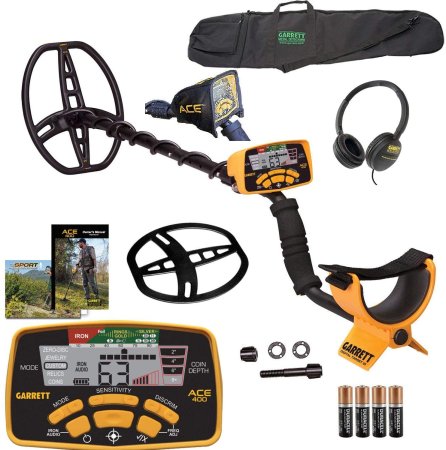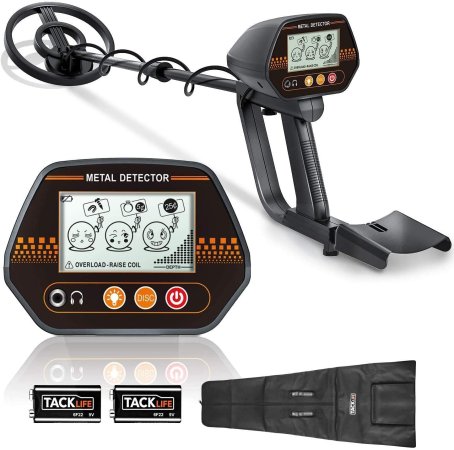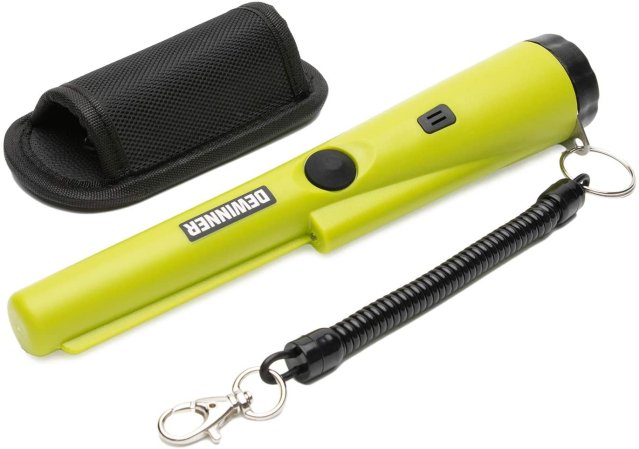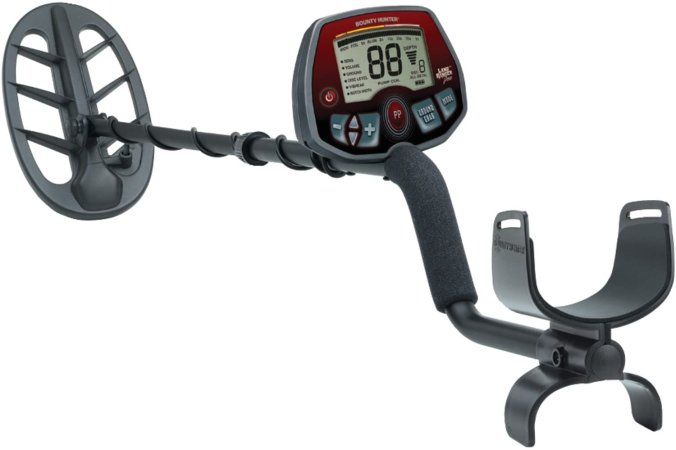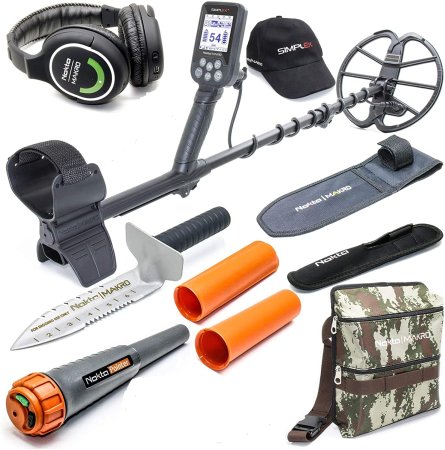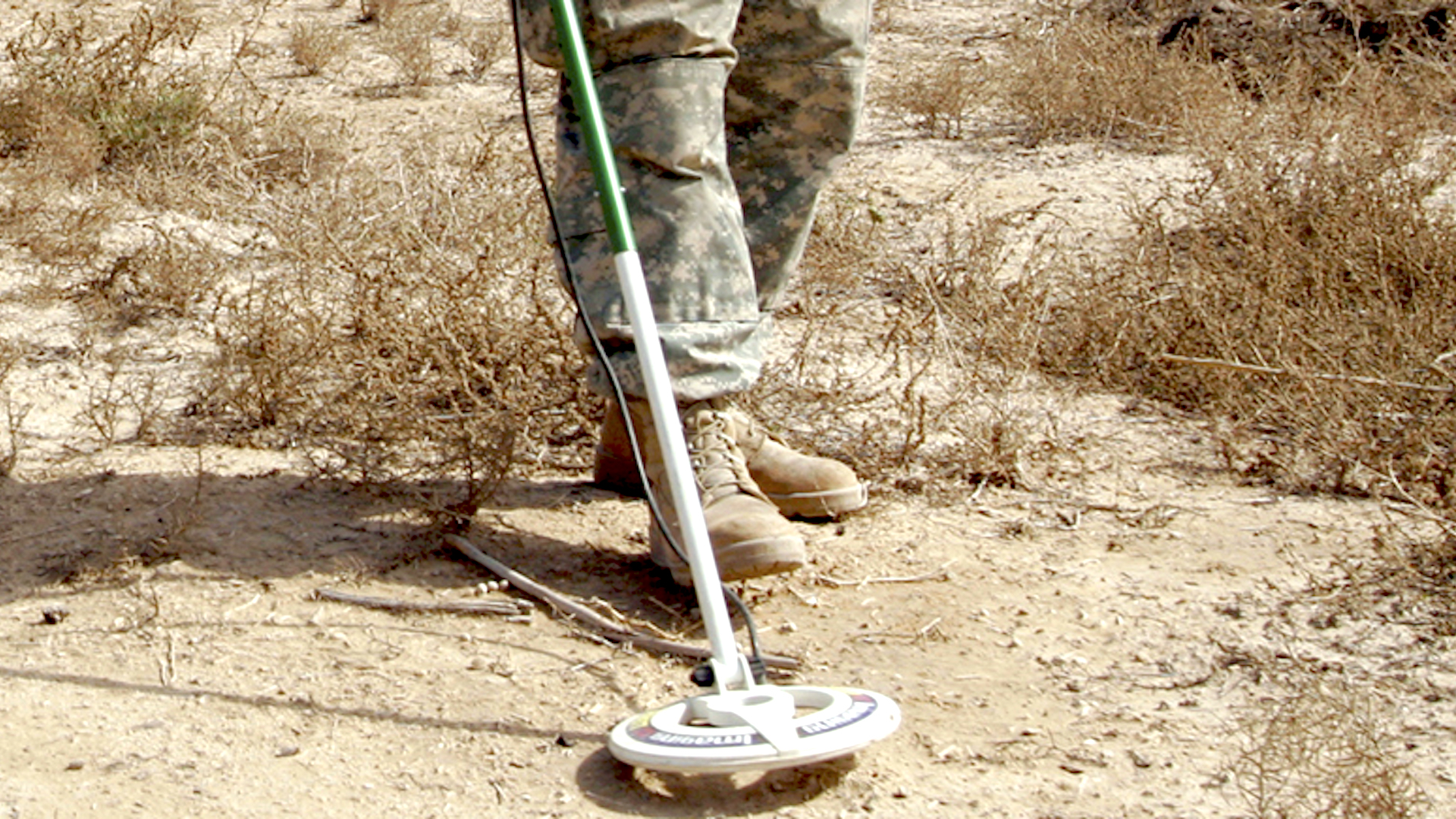

We may earn revenue from the products available on this page and participate in affiliate programs.
You know what they say: gear adrift is gear a-gift. Back in the day, if you wanted to find something more valuable than your buddy’s cell phone charger and stash of energy drinks, you had to have a treasure map. Land your own personal metal detector, and you can skip the old map and go straight to the good stuff.
Metal detectors are popular at the beach as prime territory for finding valuables others have left behind. They can also be used to explore the world around you and unearth artifacts from the past. If you’re doing a home improvement project that involves digging, they can also save you a lot of trouble by identifying underground obstacles.
It takes years of practice and a staggering capacity for puns to be like our hero Metal Detection Expert Gary Drayton, but you can start your own search for bobbydazzlers with one of these metal detectors for beginners. Here are our picks for the best metal detector worth shelling out for.
Garrett ACE 400
Tacklife MMDO2
Dewinner pinpoint metal detector
Bounty Hunter Land Ranger Pro
Nokta Simplex metal detector kit
Why should you trust us
As a professional writer for Task & Purpose, I keep readers well-stocked on consumer advice about all kinds of adventure gear. Looking for a tent and some bear spray for your next camping trip? I’ve got you covered. Are you curious about what a red dot sight is and why you would need one? I can help with that, too. Metal detecting is a great flavor of outdoor adventure and I’m here for it. Let’s get you set up with the right equipment and put you on the path to living out your favorite Indiana Jones moments.
Popular types of metal detectors
Metal detectors span a huge variety of sizes, prices, and capabilities. At the little end of the spectrum are pinpoint metal detectors, and at the opposite end are the commercial-grade metal detectors that can be found in large-scale search operations. For this gear guide, we wanted to focus on products that any one of us could afford and comfortably put to use. Tech Metals Research has a fantastic in-depth breakdown of these categories if you want more information.
Very low frequency
Most recreational metal detectors use very low frequency signals to locate metal objects underground. These signals interact with the magnetic fields of a piece of metal and produce an audible tone, a visible indicator, or both. Simple technology results in a very affordable price. VLF metal detectors are also user-friendly, making them a great choice for beginners.
The drawback of this style is a limited signal that sometimes struggles to discern between different kinds of feedback. Certain soil types can generate interference that produces false positives. For the money, though, that’s a compromise we’re happy to make. If you’re getting into metal detecting for fun or to do small projects around the house, there’s nothing wrong with purchasing a VLF metal detector. This is what you’ll find in this gear guide.
Multi-frequency
Higher up the price range are multi-frequency metal detectors. Rather than the single frequency used by VLF metal detectors, these broaden their output to more effectively search for objects of different sizes in different locations. It’s important to know that not all multi-frequency metal detectors offer the same capabilities. Many scan all their frequencies simultaneously, while selectable-frequency metal detectors allow the operator to choose which ones to use in any given situation. Think of that as refining search criteria.
This sophistication does come with a significant jump in price, so these are best left to more experienced hobbyists. If you have room in your budget and the time to practice with one of these, more power to you.
Pulse induction
Pulse induction metal detectors benefit from a much more refined signal that offers improved performance in challenging terrains like soil with high mineral content and the salty sand at the beach. Rather than a continuous output, these metal detectors fire individual signals hundreds of times every second and interpret the feedback they get from each one. This also allows them to reach depths beyond what you could search with other metal detectors.
These capabilities make pulse induction metal detectors very popular among people searching for gold or scanning the beach. The advantages are significant and impressive, but the cost is enough to keep them out of reach for most amateurs.
What to consider when buying a metal detector
There are a few different types of metal detectors available. Metal detectors have been available to consumers for years, and advancements have come a long way from what you might find in your parents’ basement. Some of today’s metal detecting technology is so expensive that it’s hard to justify unless you’re a professional. We stuck to the types of metal detectors hobbyists can afford when making this list, so everything you see here is built for recreational use.
That being said, these metal detectors are plenty capable. We prioritized products that feature submersible coils, multiple kinds of feedback, and the ability to distinguish between different types of metal. With all that taken care of, you can focus on your budget and think about adding accessories like cases and tools for digging.
Do you need a metal detector?
Let me put it another way; do you need to find priceless treasure that transforms your life and finances your extravagant new estate on the French Riviera? I suppose not, but it would be a lot cooler if you did. Even if that best-case scenario is out of reach, you can still have a lot of fun digging up less-than-valuable buried treasure.
Metal detectors make quick work of searching beneath the ground and underwater for metal, and many can identify which type of metal is present. Beyond hunting for gold coins, you can use a metal detector to find historical artifacts or find underground obstacles before you dig in your yard.
Even if you never strike it rich or uncover traces of a forgotten civilization, you can still enjoy time outside and the thrill of the chase with friends.
- Find artifacts and other valuables that have been lost below ground
- Save time by efficiently searching large areas
- Get a legitimate excuse to spend all day at the beach
Pricing ranges for metal detectors
- Less than $500: Recreational metal detectors are more than adequate for most people. If you’re just getting started, this is the price range for you.
- Between $500 and $1,000: More technology costs more money, so don’t be surprised when more capable metal detectors come with a bump in price.
- More than $1,000: For more than $1,000, you’ll get premium metal detectors fit for an archeological dig. If metal detecting isn’t your profession, you’ll have a tough time breaking even.
How we chose our top picks
Wouldn’t it be great to take a week off and search Caribbean beaches for buried treasure? We think so, but the accounting department said that wasn’t a good use of company resources. Since we can’t test all of these metal detectors by hand, we have to rely on the thousands of customers who have. We consulted hundreds of reviews on dozens of products to bring you the cream of the crop.
